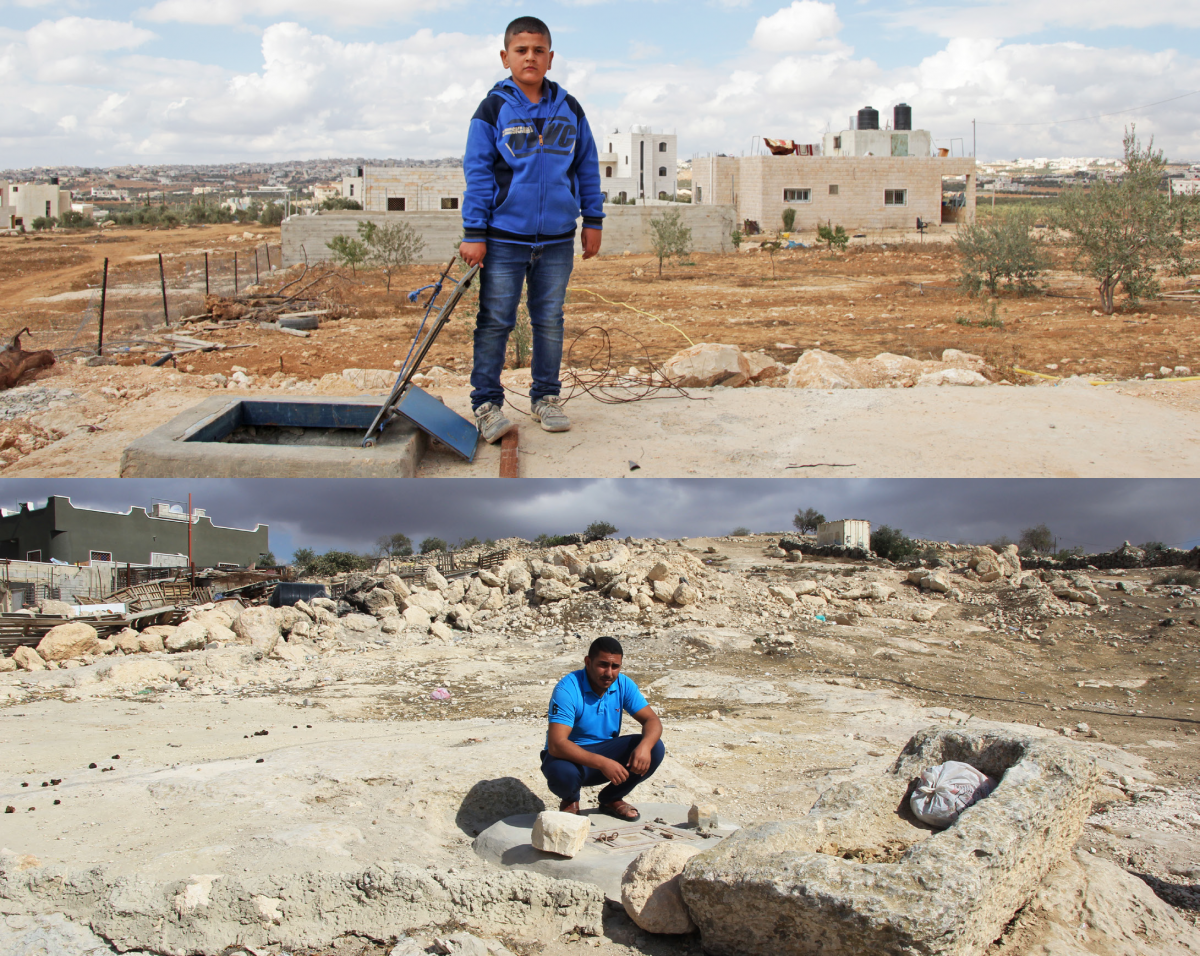Investing in the economic development of Al Karmel by rehabilitating water cisterns
The first economic development project was launched in the newly created municipality of Al Karmel, which consisted of four villages before the merger. The socio-economic analysis of Al Karmel revealed that the cluster has four sectors of high economic potential. The most important of them is the agricultural sector.
The agricultural sector’s growth was hindered due to a severe lack of water. Therefore, the development strategy for Al Karmel focused mainly on improving the access to water for the local farmers. In total, 35 water cisterns were rehabilitated, and farmers could start collecting rainwater for agricultural purposes again.
In addition to the above mentioned direct outcome, the project also achieved the following additional results:
- Local employment: the project created temporary jobs for 129 local workers.
- Local construction materials: the required construction material was bought in the Al Karmel cluster, benefiting the local economy.
- Beneficiaries’ training: 40 farmers were trained on water management skills and best water practice awareness, in order to maximize the use of the available rainwater.
- Financial benefits (savings): depending on variable factors (family size, water consumption rate and purpose (drinking; agriculture; and/ or for livestock), water wells’ capacity; and winter season rain level), the focus group assessment showed that every beneficiary could save an average of 150 cubic meters a year (because the quantity of purchased water was reduced), which can be translated financially to 3000 ILS a year.
- Agricultural benefit: some beneficiaries explained that saving water in their rehabilitated wells has encouraged them to get involved in agriculture for home use.Those who were already involved in agriculture were able to cultivate additional trees such as citrus and almonds trees.• Water quality: the reliance on external water sources, of unstable quality, for personal use has been reduced. The community can now use the rehabilitated water wells, which guarantee a better water quality.
Testimonies from Al Karmel
"We collect rain water in the well to water our olive trees and to provide oursheep with drinking water. Having our own water resource 8 months a yearsignificantly benefits our business. It makes us independent because we don’thave to rely on external water sources and it allows us to save money because wedon’t have to buy water tanks anymore. The women of the family are in charge ofthe business and it allows them to contribute to the family income by selling milk,meat, yoghurt…" - Wisam Smirad
Water is essential for our olive production: the more water we have, the betterthe olives taste because water reduces the acidity in the olives. Thanks tothe water well our production cost has gone down and our business is moreprofitable. We also got a training to maintain the water cistern ourselves, whichallows us to cut costs even more. - Ali Alhamamdeh
Latest news from this project
No news

